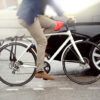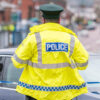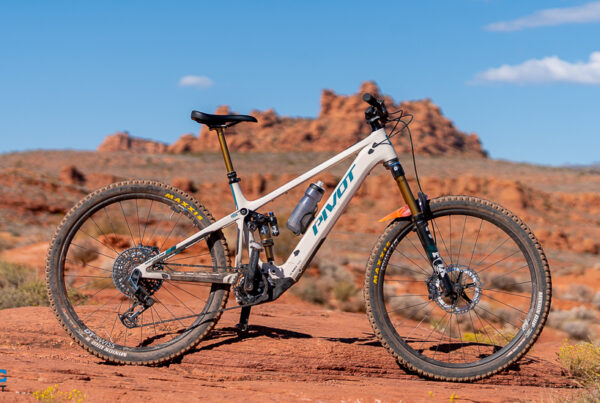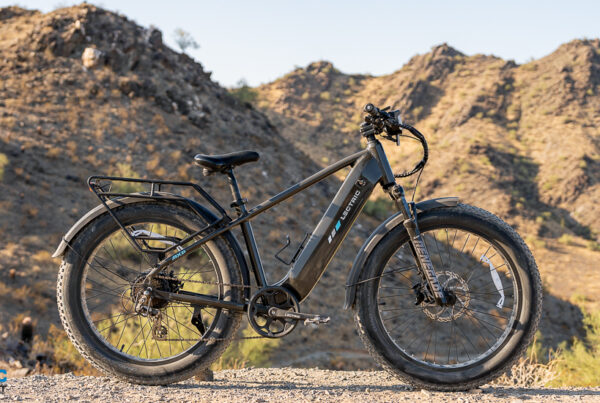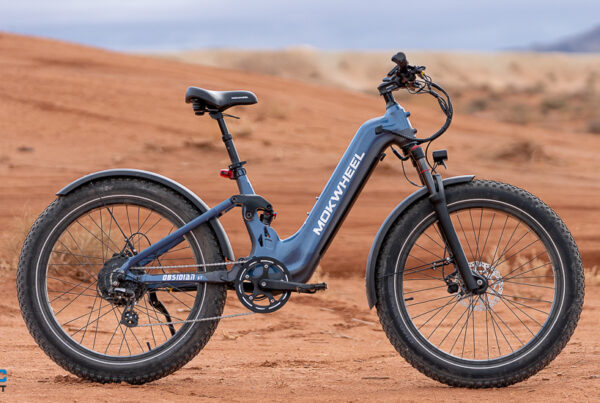Some links may be affiliate links. We may get paid if you buy something or take an action after clicking one of these.

Named after Harley Davidson’s oldest-known motorcycle, Serial 1 is a spinoff of the storied American motorcycle company dedicated to building some of the best electric bicycles in the world.
Though its own standalone company, Serial 1 is based on Harley Davidson’s campus in Milwaukee, Wisconsin and is backed by Harley’s world-class product development and engineering teams.
Serial 1 is a relative newcomer to the e-bike ecosystem, but their cutting-edge city and commuting e-bikes have already earned a reputation as particularly well designed electric bicycles.
Electric Bike Report sat down with Aaron Frank, Serial 1’s brand manager, to learn more about the company, its e-bikes and its interesting relationship with Harley Davidson.
Tell me a bit about the company. What is Serial 1?
Serial 1 is a new standalone independent e-bicycle manufacturer. The project was born inside of Harley Davidson about four years ago.
The bikes were 100 percent fully developed and engineered inside of Harley Davidson, and then the decision was made in August of 2020 to spin Serial 1 off into a separate brand. So we created Serial 1 powered by Harley Davidson. The expectation being that we would be much more successful behaving as a bicycle brand rather than a motorcycle brand in the bicycle space. This gives us the flexibility and the agility to be a bicycle manufacturer and not a motorcycle manufacturer, but we still have our close relationship with Harley Davidson that gives us credibility and validity in the e-bicycle space, which is super important.
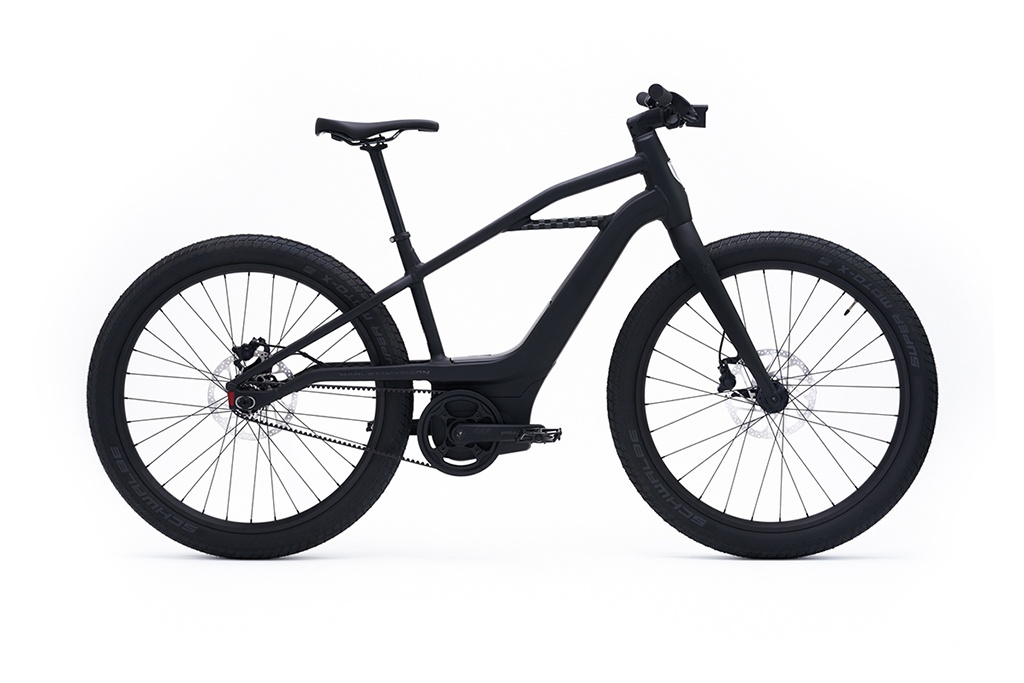
The Serial 1 Mosh/City, a single-speed commuter powered by a Brose S MAG mid-drive motor.
You know, the bicycle space right now is super crowded and super competitive. There’re legacy bicycle manufacturers getting into the e-bicycle space; there’re transportation manufacturers; automotive and motorcycle manufacturers; and then there are e-bike startups. So it’s kind of like this crazy Wild West you know, and no one really knows who is who or what is what.
Even if you know nothing about bicycles and you know nothing about motorcycles, you do know that Harley Davidson is a brand that’s been around for almost 120 years and is really well known for making very high quality two wheeled vehicles. So there’s that element there that kind of validates Serial 1’s product, and that’s been really important for us.
The e-bike industry very much is the ‘Wild West’ right now. What makes Serial 1 different?
The most important thing is we’re really serious about being a long-term player in the bicycle manufacturing industry.
So, the biggest thing is our bike is 100 percent unique to us. There’s a lot of intellectual property in the bike and we have a super robust patent portfolio — we really developed the bike from the ground up to be a really, really good e-bicycle. We’re building the brand to be a really serious player in the bicycle industry.
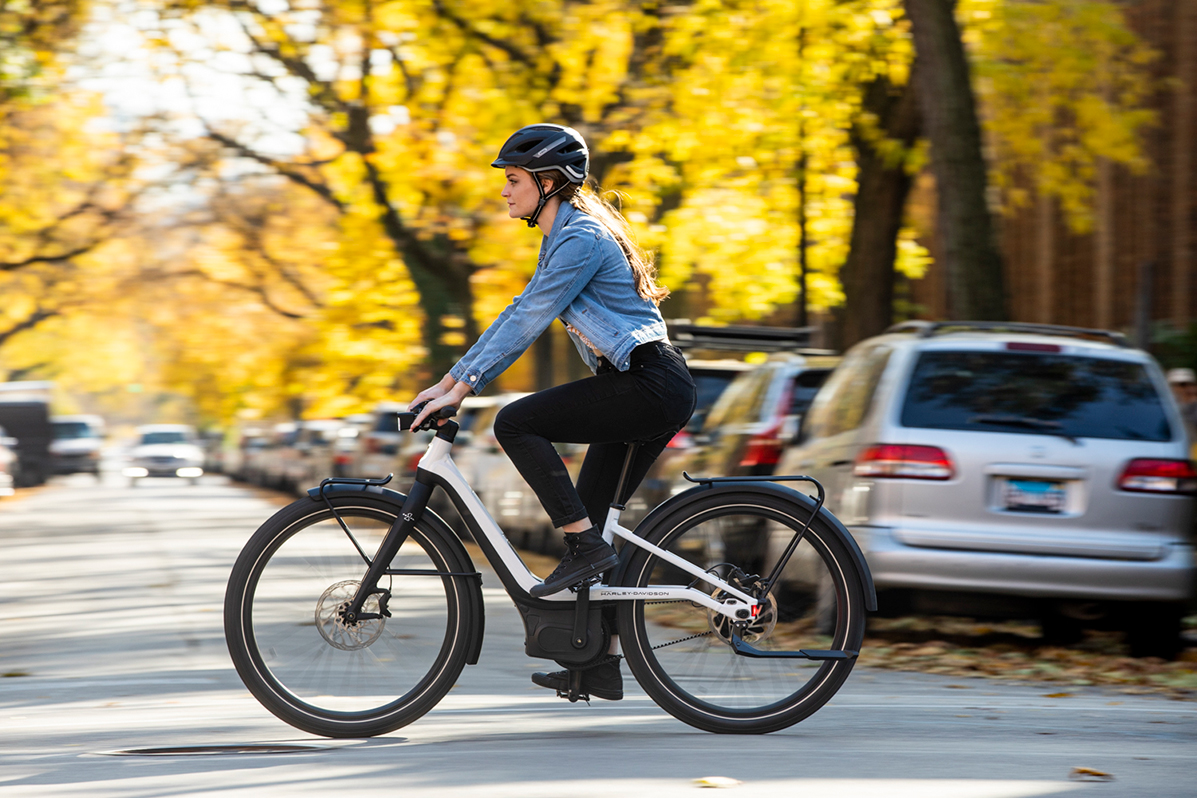
The Serial 1 Rush/City Step-Through.
Especially in the segment that we’re in, with these automotive and motorcycle manufacturers entering the bicycle space, you see so many of them just rebadging or rebranding existing products with their name on it. That is definitely not our modus operandi. We did a lot of market research before we entered this space and we decided that the best way to be successful was to be serious about it; it wasn’t just jumping on the bandwagon and wandering down the right alley in China with a suitcase full of money and coming out the other end as an e-bike manufacturer.
We started from the ground up with the design and development of our bikes 100 percent here at the Harley Davidson headquarters in Milwaukee. Everything from our mid-motor design and the custom frame with elevated chainstays is unique to us. There’s a lot of intellectual property in our bike that we feel like really sets the bikes apart. Most e-bikes, even in this premium space, have a battery that fills the entire down tube of the bike, but our batteries are super short and compact because we know from 120 years of making two-wheeled motor vehicles that mass centralization is everything for maintaining really good balance handling.
So, designing our own battery to maintain that perfect mass centralization and all the unique integration are things our bike has because we actually developed our bike from the ground up. It really differentiates us in the space and really makes a bike that is supremely functional and really kind of beautiful. We’re serious about being a long term player in the bicycle industry. We’ve designed our products from the ground up to be superior e-bicycles and we’re really looking at that as a differentiating factor.
How much of Harley’s motorcycle expertise has influenced Serial 1’s e-bikes?
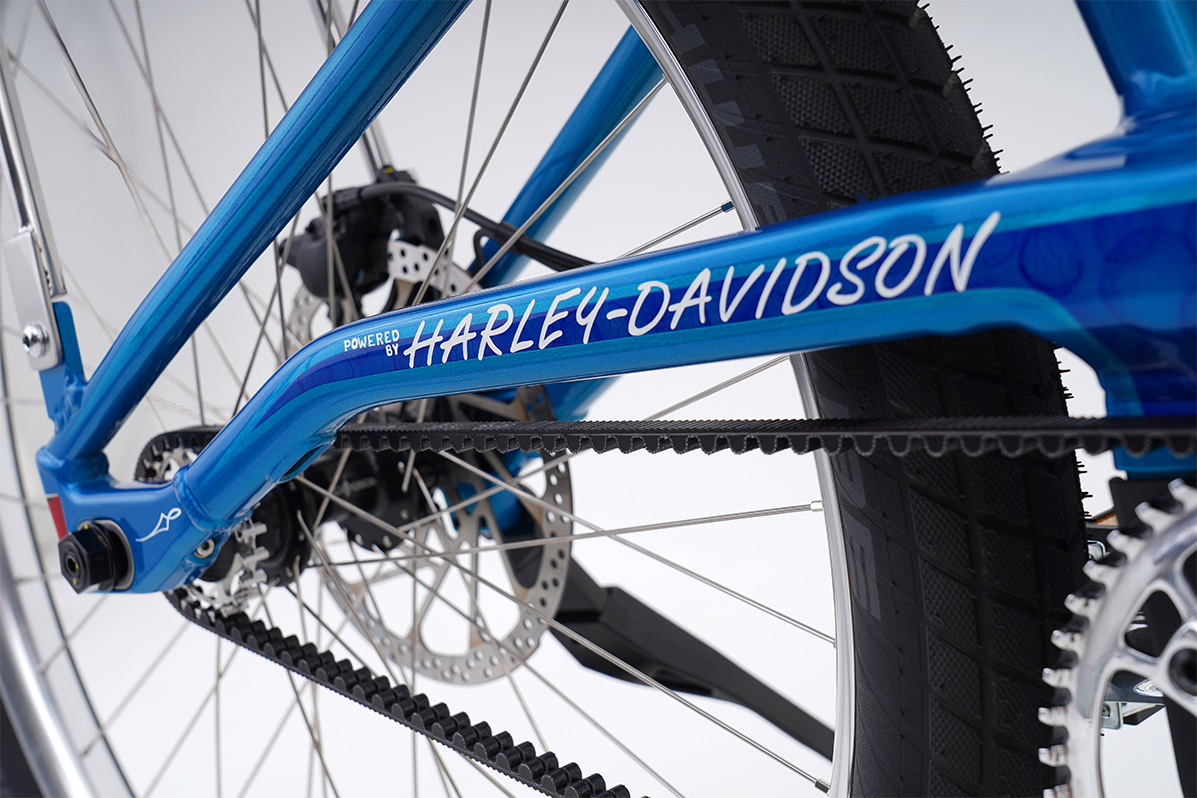
Some Harley Davidson love on the chainstay of a special-edition Mosh/City outfitted with chopper bars, a banana seat and custom paint.
In a lot of ways, an e-bicycle is more like a motorcycle than a bicycle. It’s a powered two-wheeled vehicle, so all of that stuff we know about vehicle handling dynamics; all of the stuff we know about human ergonomics; everything that we learn through our partnership with Harley Davidson is applied to this space here.
There’s also the expertise that comes from Harley Davidson’s history making electric two-wheelers, too. They do make an electric motorcycle — the Livewire. So being able to bring all of that stuff together and build a bike that’s really built to a motorcycle standard, rather than a bicycle standard, I think really sets us apart. Our product development at Serial 1 is independent but we’re still on the Harley Davidson campus here in Milwaukee. We still have a really close cooperation with the larger engineering powerhouse at Harley Davidson so if we have questions about testing or electrical engineering or something like that our team has access to that larger Harley Davidson design and development resource. I think it gives us a lot of power and a lot of access to resources that most startups don’t have.
Being able to leverage that expertise and bring it into the e-bicycle space is really important. These bikes are also put through a lot of the same testing protocols in the same facility where Harley Davidson tests all of its motorcycles, so I think that the bikes really are developed to a very high standard for the bicycle industry. I think that that comes through in the actual function of the bicycle and the end product that the consumer interacts with.
Who is Serial 1’s target demographic, and how do you envision your bikes playing a part in their lives?

Photo evidence that Serial 1’s commuters are good at more than just commuting.
Our bikes that are on the market right now are all part of our city bike platform, so they’re primarily intended for urban commuting. Purely in terms of numbers, that category is the largest opportunity for e-bicycle sales right now so that’s why we went after the city platform first.
That said, the current bikes are not only for city commuting. Everything that makes them great for city commuting — the upright neutral riding position, that really balanced handling, the high degree of durability — also makes them great light recreational e-bicycles. So if you live in the suburbs and want to ride around the neighborhood or you want to strap something on the back of your RV or you want to do even a little light off-road riding, our city bikes are still really good for that too.
We did a lot of market research before we even built our first bike and we quickly realized that the greatest opportunity for e-bicycles right now are people who are not currently riding bicycles; people who are interested in bicycling but haven’t made the commitment because it’s too difficult or too time consuming or takes too much effort or something like that. There’s people who are cycling-adjacent who want to be cyclists but aren’t cyclists for XYZ reasons, and e-bicycle technology really kind of makes that activity more accessible.

The Mosh/Chopper, a one-off custom Serial 1 designed to harken back to 60’s-era wheelie bikes. This one sold for $14,200.
At the same time, somebody who’s not currently a cyclist doesn’t want to lubricate or clean a chain, adjust a derailleur or tighten a stretched out brake cable. Sometimes they don’t even want to learn how to navigate bicycle gears, so we tried to design a bike that’s super accessible to someone who is not currently a cyclist. So if you look closely at our bikes, there’s a lot of really deliberate design decisions that make our bikes low maintenance and very easy to use. All of our bikes use the clean and low-maintenance Gates belt drive and our Rush city bikes use the Enviolo AUTOMATiQ automatic transmission, which does the shifting for you and keeps you at a comfortable cadence — it always feels like it’s in the perfect gear. The lights are also integrated and run off the bike’s battery and the cables and wiring are run through the frame so they’re protected from the elements. Not only does it look really clean and really beautiful, but it’s significantly lower maintenance because all of those vulnerable wires and cables are protected from the elements.
So you can see that at every point, we made a lot of really deliberate design decisions to make these bikes super low maintenance, super intuitive and super easy to ride because we want someone to just get on a Serial 1 bike and enjoy the ride.
What do Harley Davidson’s core customers feel about Serial 1’s e-bikes? Do they like them?
We’ve actually demoed Serial 1’s bikes at a lot of different events including the Sturgis Motorcycle Rally, Barrett Jackson and here at Harley Davidson’s hometown rally, which is kind of like the annual homecoming for Harley Davidson. And I think that someone who’s affluent, active and looking for a fun and healthy way to explore the world on two wheels is very interested in e-bikes.
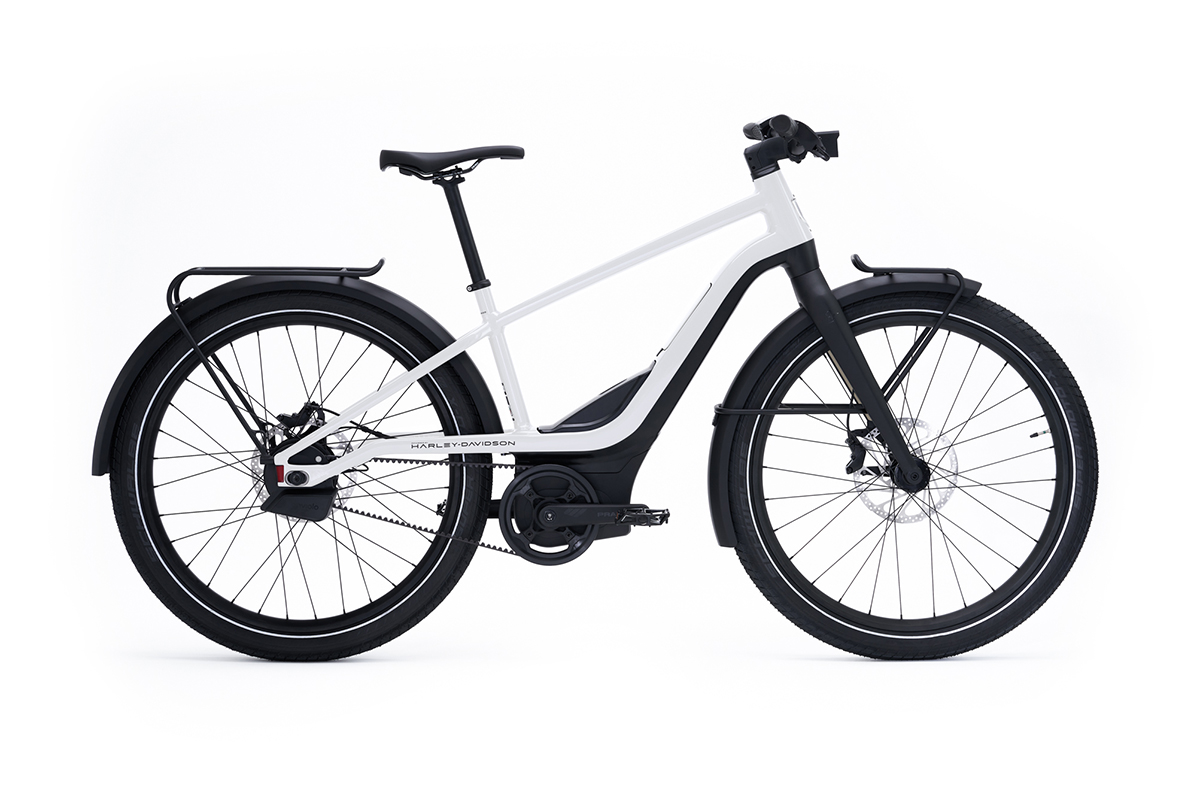
The Rush/City Speed, a Class 3 commuter capable of 28 mph.
If you think about classic Harley Davidson, what do you think about? You think about fun, freedom and adventure on two wheels. You buy a motorcycle when you want to explore your world, and that is part of the whole Harley Davidson mystique. There’s a strong argument to be made that the same mystique translates just as well to the e-bicycle space and into the city. Instead of buying a $40,000 touring bike and going for two weeks to Monument Valley, you can buy an e-bicycle and explore parts of your city that you’ve never seen before because they’re only accessible by bicycle.
So whether it’s, you know, a giant city park you’ve never been through or a converted railway trail system that you’ve never been on or any of the bike lanes or paths that so many cities have, an e-bicycle isa perfect tool for exploring your world and experiencing that sensation of fun, freedom and adventure on two wheels. I think that’s already something that people in the motorcycle space identify with, and it’s really not a stretch to kind of bring that over to the bicycle space.
What’s Serial 1’s design and manufacturing process?

I would say probably half of that engineering team is ex-Harley Davidson and they’ve been with the project from the beginning, so there’s a very deep level of familiarity and experience here.
Our product development team has access to Harley Davidson’s larger engineering resources, but we have a really great team that is led by Ben Lund, who is our VP of Product Development.
Ben has a really interesting background, he worked as a powertrain engineer at Harley Davidson for almost a decade and he was one of the very first engineers on the Livewire e-motorcycle project. He then left Harley Davidson and went to work as an engineer for the bicycle component company SRAM for a few years before returning to Harley Davidson to lead the Serial 1 e-bicycle project. He’s someone who seamlessly blends that motorcycle engineering background and that bicycle background and brings it all together in the creation of the Serial 1 e-bikes.
We have a few other people who came from either the motorcycle industry or bicycle industry working underneath Ben, but it all gets channeled into creating this next generation of the bicycles for Serial 1.
Thanks for reading! We hope you enjoyed this interview with Serial 1. What questions do you have about Serial 1’s e-bikes? Let us know in the comments below.
Related
Reader Interactions
![]()
Source link


